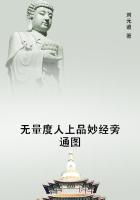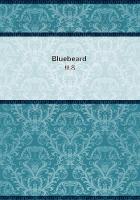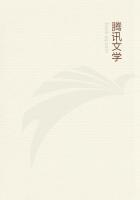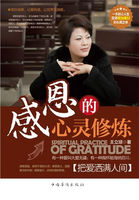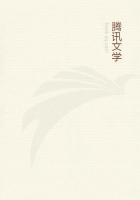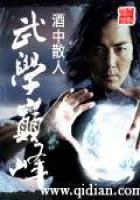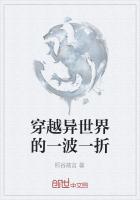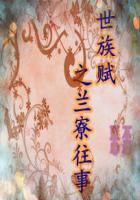The three philosophico-historical essays exhibit all the peculiarities of his mind: they are theoretical, they inquire into causes, and display an enlarged acquaintance with the sciences.He begins with showing that wonder called forth by the new and singular, surprise excited by what is unexpected, and admiration raised by what is great and beautiful, these -- and not any expectation of advantage, or the love of truth for its own sake-are the principles which prompt mankind to try to discover the concealed connections that unite the various appearances of nature, which give rise to the study of philosophy, {171} which is defined as the science of the connecting principles of nature."Nature, after the largest expenditure that common observation can acquire, seems to abound with events which appear solitary and incoherent with all that go before them, which therefore disturb the easy movement of the imagination; and philosophy aims at discovering the invisible chains which bind together all the disjointed objects.Hence, in astronomy, the invention of eccentric spheres, of epicycles, and of the revolution of the centres of the eccentric spheres; in physics, the four elements; and in metaphysics and logic, species, essence, and ideas, --all these give the imagination something to rest on." These motives have no doubt helped to create a taste for science, and often given it a particular direction; but many other causes have been in operation.It appears to me that, had Smith been able to devote as much time to a history of philosophy as he did to the "Wealth of Nations," and been in circumstances to review his theories from time to time, he might have written a better work than any produced in that century.No doubt he would at times have added a thought of his own to the account given of a philosophic opinion; but, following out his favorite principle of sympathy, he would always have put himself <en rapport> with the authors and their times.
His paper "Of the External Senses" is characterized by much sound sense and a profound study of the subject.He goes over the senses one by one.He has a glimpse of the important distinction -- afterwards carefully elaborated by Sir William Hamilton, and Miller the physiologist -- between the perception of the organ and of objects beyond the body.
Tasting, smelling, hearing, and certain sensations of touch, are altogether in the organ, and nowhere else but in the organ.But in regard to touching, " the thing which presses and resists I feel as something altogether different from these affections, as external to my hand, and as altogether independent of it." He represents the objects of touch as solidity, and those modifications of solidity which we consider as essential to it and inseparable from it, --solid extension, figure, divisibility, and mobility." He defines the impenetrability of matter as " the absolute impossibility that two solid, resisting substances should occupy the same place at the same time." He expounds {172} a doctrine in regard to the so-called secondary qualities of matter or, to speak more properly, these four classes, of sensations heat and cold, taste, smell, and sound being felt not as resisting or pressing on the organ, but as in the organ." He says that they "are not naturally perceived as external and independent substances, but as mere affections of the organ, and what can exist nowhere but in the organ."This is perhaps a more philosophical account than that given by Locke, Reid, or Hamilton, who proceed on the distinction drawn between the primary and secondary qualities of matter.
In regard to sight, he says the objects of it are color, and those modifications of color which in the same manner we consider as essential to it and inseparable from it, --colored extension, figure, divisibility, and mobility." The tangible world has three dimensions, -- length, breadth, and depth; the visible world, only two, -- length and breadth.
He recognizes Berkeley's theory of vision as "one of the finest examples of philosophical analysis that is to be found either in our own or in any other language; " and he quotes the Chiselden case.He notices the fact that, antecedent to all experience, the young of at least the greater part of animals possess some instinctive perception of distance."The young partridge, almost as soon as it comes from the shell, runs about among the long grass and corn." He is inclined to think that the young of the human race may have some instinctive perception of the same kind, which does not come forth or manifest itself so strongly as in the lower animals, because mankind have greater aids from intelligence and education.He thinks that other senses, "antecedently to all observation and experience, may obscurely suggest a vague notion of some external thing which excites it.The smell not only excites the appetite, but directs to the object which can alone gratify that appetite.But, by suggesting the direction towards that object, the smell must necessarily give some notion of distance and externality, which are necessarily involved in the idea of direction." These hints are worthy of being carried out: they will certainly not be despised by those who in our day are studying hereditary instinct.
It does not consist with our purpose to give an account of his labors in political economy.I may remark, however, that in his work, and in every other, there is an omitted chapter, {173} which will require to be written by some one before the science is completed.In speaking of soil, labor, money, rent, and other external agents, there is no searching estimate of the internal motives which impel men to the acquisition and distribution of wealth.Some writers, such as James Mill, represent all men as swayed only by self-love; others dwell fondly on such principles as a taste for literature or the fine arts: but there has been no discriminating computation of the springs of action, general and special, which lead men to make acquisitions, and which have produced different results in different ages and nations; for instance, to one form of civilization in Italy or in France, to others in Germany or in Scotland.Smith might have been tempted to set too high a value on certain influences which were favorites with him, but he was eminently fitted to begin the undertaking; and had he done so, he would have left us admirable illustrations of the power of motives actually swaying mankind.

